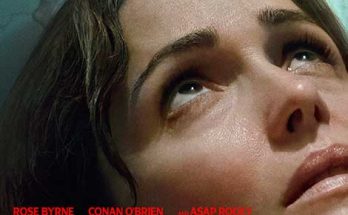Toronto/CMEDIA: Written and directed by Oscar-winning Nomadland director, Chloé Zhao navigates the prolific and tender drama of TIFF 2025 movie Hamnet about William Shakespeare (Paul Mescal) and his family as seen through the eyes of his thoughtful wife Agnes (Jessie Buckley).
In William Shakespeare’s day, the names Hamlet and Hamnet were interchangeable. Chloe uses the context of a family tragedy to one of his most famous works and suggests that by this context readers can better understand Hamlet, considering that it was developed while he was mourning the death of his 11-year-old son, Hamnet. Zhao’s direction balances sorrow with moments of joy, presenting the legendary playwright not as a distant genius but as a husband and father deeply shaped by domestic life.
Asha Bajaj, IBNS-CMEDIA correspondent on the sidelines of TIFF 2025 in conversation with Chloé Zhao, Jessie Buckley, and Emily Watson to know more about the different features of the film, Hamnet.
The following is an excerpt of the conversation:
Chloe, after your Oscar-winning Nomad Land and your Marvel epic, The Eternals, what drew you to this film now?
Well, I made four films in my 30s and they were horizon sunset chasing films and expensive. And I realized when I turned 40 and in my 40s when I went through some difficult midlife crisis stuff I realized I was running away from myself very similar to Will in the film. So the challenge I was looking for is a project where I am on one stage in one room. I’m still silent with myself. there’s nowhere else to go but to descend, you know, it’s really uncomfortable. But when I read Maggie’s book, it provides the perfect container for that. And then I met Jesse and Paul, and there was no question after that.
To Jessie: Tell us about the character of Agnes Shakespeare who really emerges in the film as someone who is the repository of the deepest emotions of this story. But maybe hadn’t been as well known until it emerged in Maggie’s book and now in the film. What were the important elements in conveying about this woman and at this time as well when the lives of women were very different perhaps than they are now?
Jessie: Well she’s not much different to the women that are around now. But I think that the journey that I went on living with this character and the river that Chloe invited me in to feel with this character was something I was looking for. I was terrified of the kind of fierce tenderness that she led her heart open with. Sometimes to be a strong woman, it comes with a projection of like you’re the forest witch basically of the wood. And that usually is kind of the projection is too much and you can walk around your life defensive but also starving for the very love and life that you want to feel. That is why she keeps returning to the woods to the precipice of love where she has kind of narrated her experience of death in this woods having loved the mother that she knew. And when this character came and when Chloe asked me to step into this river, the tenderness was the thing that hit me like a tsunami the most and changed me forever.
Chloe, you began the event today by leading us through a breathing exercise. Talk a little bit more about that kind of process and that kind of practice and how you bring that into your filmmaking. I’d like to hear from the actors as well in terms of the creative culture that you create on set.
Speaking honestly I had a difficult upbringing and really didn’t feel safe in my own body and had to go into my mind. I’m very grateful for that because it led me to storytelling but then it doesn’t mean you can’t live your whole life like that. So I was working with different modality of somatic release and then I met Jesse and she introduced me to dreamwork which is probably the most vigorous way of working with your subconscious and also the collective unconscious. But when you still feel the same pain giving birth, you still feel the same heartache when the man you love has to leave. So the idea is to drop into the body and the unconscious to try to open a channel between her and Anas, between Emily and Mary. And so, when we’re on set, they can be as present as possible. And so sometimes breathing, you know, our version is a lot more rigorous. Like at the Shakespeare’s Globe, we would spend 15 minutes before each take and just play. Max Richter always helps. And then and then dropped all the audience together back into their body. And actually, we feel truly that we’re not that different from each other once we’re in our body.
And Emily, what was that practice like for you as actors? Had you done that sort of thing before or was this new in terms of Chloe’s practice?
Emily: Answering this question makes me feel very nervous in a way that I don’t usually in this situation simply because Chloe invited us on a journey which was just honest. She asked us to take a journey inside ourselves to see how we were present in this story. And I had a lot of connectivity with Shakespeare already. I think I watched the show when I was about seven. I met my husband there. My daughter’s name is Juliet. My husband’s family are from Stratford on Haven. I have a lot of connections there. So when the dream work lady asked me where I connected with this it was a very profound experience for me. It added to the fact that I was there to be beside my very good friend and support her through all this that you’ve just seen. I don’t really know what the question was or what the answer was, but it meant so much to me just to be in the room.
Chloe, I want to ask you and maybe the actress can jump in as well about conveying grief on screen. It’s not like some other emotions. Anger sometimes is just, you know, acting outwards and there are actions associated with some emotions, but grief is a tougher one, I think. Can you talk about how you came up with how to shape anger through the performances of your actors?
Grief. Yes, I can do anger, too. I’m sure some of you feel that tightness in the chest, and unfortunately in our society that tightness just stays there. It doesn’t have a place to be expressed and sometimes it’s even shamed. I think in many ways every single of my films is about grief. It is about losing something that is incredibly important to someone’s dreams, home, purpose, faith, loved ones, this community, a child, you know, love. And so life is incredibly difficult because according to the law of nature, seasons will change. All those things I just mentioned, our achievement, everything we try to hold on to, our work, our passion, dreams, loved ones, ourselves, and maybe us as a species were born and we will die one day, and all living things must die, passing through nature to eternity.
To Chloe: How do you hold that tension and still keep your heart open and live through making this film?
And I also was experiencing my own heartbreak and heartache while making the film. I came out of it truly believing there is something that doesn’t die. And we know scientifically energy doesn’t. And you can also look at it as that love does not die. It transforms. And I think we hold on to that every day. Doesn’t matter how much pain we’re feeling in scenes, we try to alchemize that. And that’s something every one of you and us can do. It’s not just William Shakespeare. Sometimes we just forget.
And for the actors it’s a bit ironic. I suppose this is a film about the Shakespeare family’s perhaps the greatest known author, but so much of the emotion that’s conveyed is beyond words.
By Asha Bajaj





